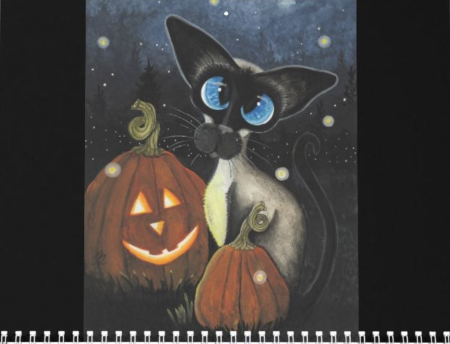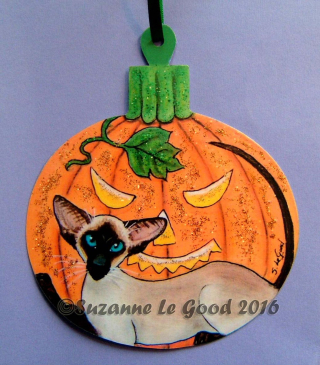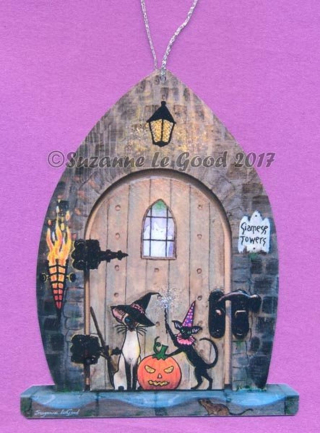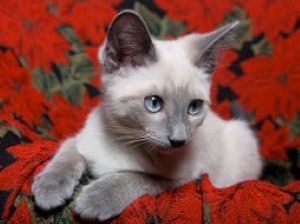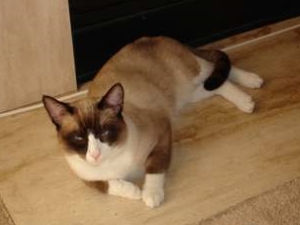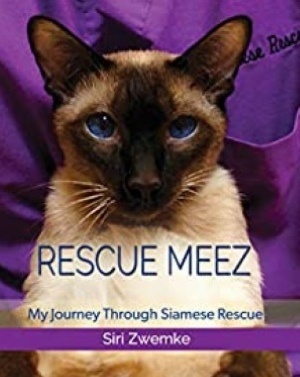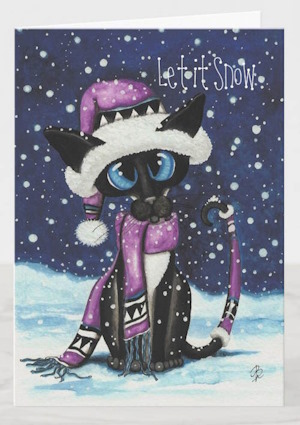- Home
- Meezer Musings
- September 2020
Meezer Musings: September 2020
The Autumn of Our Years
As we reach the end of September the days here are getting shorter, the weather is distinctly colder, light levels are lower and the trees are on the turn, swapping their bright green summer leaves for the browns, reds and golds of autumn.
Winter's Coming
The year is getting older, and soon, for those of us in the northern hemisphere, it will be winter.
As the year turns autumnal it feels appropriate that this month we're going to talk about cats in the autumn of their years - our senior 'Meezer Geezers' - and what to look out for as they age, and how best to care for them.
But first, a warm welcome to those of you who've joined our newsletter list over the summer, and a welcome back to our regulars!
When I left you at the end of June Covid-19 seemed to be on the wane - here at least - but it has since returned with a vengeance with cases firmly on the increase.
I
hope, wherever you are in the world, that you've managed to stay clear
of the virus and that you, and your human and fur-families, are all safe
and well.
How Old is Old?
How old is old? According to the American Association of Feline Practitioners, a cat comes to maturity at around seven or eight years old, with cats entering their senior years at the age of eleven.
(If you're interested in how old your own cat is, in human years, check our Cat Age Chart.)
As in humans, advancing age affects every part of a cat's body. Heart and lungs, other major organs like the kidneys and liver, glands (in particular the thyroid and pancreas) the immune system, muscles, bones, teeth, sight and hearing all become less efficient as a cat ages.
So it's helpful to know what to look out for and expect as your cat enters its senior years.
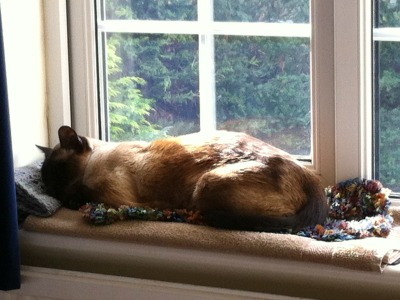 Warmth for old bones
Warmth for old bonesImage copyright © Life with Siamese Cats
How is a Cat Affected by Age?
Below you'll find a run-down of the things you'll need to be aware of, and some of the conditions that may occur as your cat ages:
- Immunity: an older cat's immune system starts to slow down, making it more prone to infection and reducing the ability to fight disease. Keeping your cat's vaccinations up to date is important, as is a once- or twice-yearly health check by your vet.
- Heart and lungs: these major organs start to become less efficient as a cat ages, making circulation and breathing problems more likely. Cats may develop irregular heartbeats and have difficulty keeping warm, and there's an increased likelihood of respiratory infections.
- Kidneys and liver: the function of the kidneys and liver is to filter and detoxify the blood. The likelihood of kidney disease (renal failure) increases with age and seems to be a particular problem for Siamese cats so this is definitely one to watch out for. An excellent website, run by Helen Fitzsimons and named after one of her cats, is Tanya's Comprehensive Guide to Feline Chronic Kidney Disease (this year celebrating its 20th year online) - which tells you all you need to know and more about
kidney disease in cats.
- Thyroid and pancreas: The thyroid gland produces hormones that control all sorts of processes including heart rate, digestion, muscle control, brain development and bone maintenance. An under-functioning thyroid will slow down all these processes; an over-functioning thyroid will speed them up. Neither is good, and both are more common in older cats. Diabetes (a malfunction of the pancreas) is also more common in older cats. Symptoms of both include unexplained weight loss or weight gain, both of which should be investigated, as should increased thirst and drinking and peeing more often. If your cat is affected by diabetes another excellent website for information is Diabetic Cat International.
- Joints and muscles: muscles tend to shrivel and weaken as a cat ages, and joints become prone to arthritis, making it harder for your cat to move with ease and especially to jump. If your cat's feeding bowl or bed is on a high ledge or shelf, you may need to place it somewhere lower or put a stool or chair nearby for easier access.
- Dental health: problems with teeth and gums are common in older cats and especially so in Siamese cats. Your cats' teeth need checking regularly by a vet for signs of plaque and bleeding gums. Poor dental health affects a cat's appetite as well as their overall health; tooth decay and gum disease can lead to kidney problems. You can help by brushing your cat's teeth (if it will allow you to!) with special fish-flavored toothpaste for cats. (Don't use human toothpaste as this is toxic to cats.)
- Eyesight and hearing: both vision and hearing deteriorate as cats get older and this can result in your cat getting startled easily and becoming more aggressive if they don't hear or see you coming.
It's really important to have your older cat checked over by a vet regularly - an annual or, ideally, a six-monthly check will go a long way towards identifying and coming up with treatment plans for everything above, so do make sure you schedule a regular check-up for your cat.
Danger Signals. Watch For ...
- Difficulty walking
- Bumping into furniture
- Inability to jump or climb
- Weight loss or weight gain
- Drinking more (or less) water than usual
- Broken teeth
- Signs of gum disease (redness, bleeding, plaque)
Further Resources
There's a little more information on this page of our website, but if you'd like a more detailed explanation about any of the issues mentioned, you may find the following books useful to have by your side.
The first is Complete Care for Your Aging Cat by Amy Shojai, which, as its name suggests, is a comprehensive book covering all you need to know about older cat care.
Two other good books are:
Tanya's Comprehensive Guide to Feline Chronic Kidney Disease by Helen Fitzsimons, who runs the website of the same name on chronic kidney disease in cats, and
Your Cat: Simple New Secrets to a Longer, Stronger Life by vet Elizabeth Hodgkins, whose original website, The Diabetic Cat, was the forefunner to Diabetic Cat International, that I mentioned above.
You can of course find most of the information in the two books above on their respective websites. Sometimes, though, it's easier and quicker to find the information you're looking for in a book.
A Retirement Home for Cats?
Some years ago I came across a delightful article from the BBC about a cats' retirement home attached to a more conventional Rescue.
The Lincolnshire Trust for Cats (in Lincolnshire, UK) provides a lifetime home for cats whose owners have died. Many cats in this situation are elderly themselves and difficult to re-home due to their age. This very unusual retirement home provides a comfortable, happy home where elderly cats can live out the rest of their lives in peace.
If only there were more such places to care for our older cats should the worst happen to us ...
Halloween's Just Around the Corner!
We opened with a pumpkin picture so, as September slips away, let's finish by looking ahead a few weeks to Halloween. It's likely there won't be much trick-or-treating this year, but that doesn't mean you shouldn't decorate for the season - in these times a little color and fun is probably more needed than ever.
So let's finish with two Siamese cat decorations from ever-popular artist Suzanne Le Good. I have these to brighten up my kitchen as the days get shorter, and love them both.
Perfectly Siamese and perfectly seasonal!
Printed on card, decorated with orange, gold and green glitter and laminated, this lovely bauble of a Siamese cat with his carved pumpkin measures just under 5.5 inches across and is finished
with a green satin ribbon.
Pure Witchery
A perfect companion to the pumpkin above is this 'Siamese Towers' hanging sign, featuring a Siamese cat with his Oriental kitten friend all ready to go trick-or-treating in their witches' hats.
It has all the Halloween trimmings you can think of - spooky doorway, broomstick, pumpkin, sparkling wand and lanterns!
Tail End ...
That's all for September; I'll be back at the end of October.
As we head into the shorter, colder months, remember to wrap up warmly and make sure your cats, whether young or old, have plenty of warmth, cuddles and treats to sustain them through the winter!
Caroline
Missed a Meezer Musings? A list of previous newsletters can be found here.
Some of the articles and newsletters on this site may contain links to products I think you may enjoy. If
you purchase through these links I receive a small commission, but there's
no extra cost to you. Find out more on the Affiliates Disclosure page.
Have You Discovered Our Newsletter?
If not, why not? Subscribe to our email newsletter, Meezer Musings, to stay in touch, be the first to see new information and pages as they come out, and read the things we only talk about in the newsletter.
Learn more about it on our Newsletter Sign-Up page.
